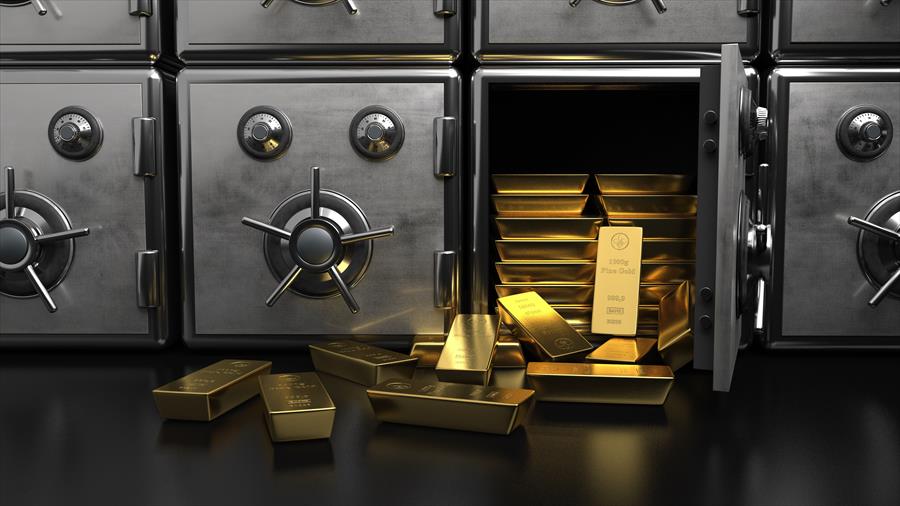A Guide to Opening a Bullion Account
If you’re interested in investing in precious metals, you may have heard of bullion accounts. A bullion account is a type of account that allows you to buy and sell physical gold, silver, platinum, or palladium bars and coins. Unlike other forms of investing, such as stocks or bonds, bullion accounts give you direct ownership and control over your assets.
But how do you open a bullion account, and what are the benefits and risks of doing so? Keep reading as the precious metals experts from First National Bullion, the silver and gold dealers Scottsdale collectors rely on for outstanding quality and service, answer these questions and more.
What Is a Bullion Account?
A bullion account is one that holds physical precious metals in a secure location, such as a vault. You can buy and sell bullion through your account, either online or over the phone, at any time of day.
There are different types of bullion accounts, depending on the provider and the service they offer. Some common types are:
- Allocated accounts – These accounts assign specific bars or coins to you with serial numbers and certificates of authenticity. You have full ownership and title to your bullion, and you can inspect it or take delivery of it at any time. However, allocated accounts usually charge higher fees than other types of accounts.
- Unallocated accounts – These accounts don’t assign specific bars or coins to you but rather pool your bullion with other customers’ bullion. You have a claim to a certain amount of bullion, but not to any particular piece. Unallocated accounts usually charge lower fees than allocated accounts, but they also carry more counterparty risk, as you’re relying on the provider to fulfill your claim in case of insolvency or default.
- Segregated accounts – These accounts are similar to allocated accounts, but they store your bullion separately from other customers’ bullion. This means you have more privacy and security as well as more flexibility in choosing the size and shape of your bullion. Segregated accounts may charge higher fees than unallocated accounts but lower fees than allocated accounts.
Why Open a Bullion Account?
There are many reasons you may want to open a bullion account, such as:
- Diversification – Bullion can diversify your portfolio and hedge against inflation, currency devaluation, geopolitical uncertainty, and market volatility. Bullion tends to have a low or negative correlation with other asset classes, meaning it can perform well when others perform poorly.
- Liquidity – Bullion is one of the most liquid assets in the world, as there’s always demand for it in the global market. You can buy and sell bullion quickly and easily through your account without having to deal with brokers, intermediaries, or paperwork.
- Transparency – Bullion has a transparent pricing mechanism based on supply and demand. You can check the spot price of bullion at any time on various websites or apps and compare it with the prices different providers offer. You can also track the performance of your bullion over time using charts and graphs.
- Security – Bullion is one of the most secure assets in the world, as it’s durable, portable, fungible, and scarce. It cannot be hacked, counterfeited, diluted, or destroyed by fire or water. It also doesn’t depend on any third party for its value or validity.
How Do You Open a Bullion Account?
Opening a bullion account is relatively easy and straightforward. Here are some steps you need to follow:
- Choose a provider – There are many providers that offer bullion accounts, such as banks, dealers, brokers, exchanges, and online platforms. You need to compare their features, fees, reputation, customer service, and reviews before choosing one that suits your needs and preferences.
- Register an account – You need to provide some personal information, such as your name, address, email, phone number, and identification documents. You may also need to verify your identity and address using an online verification system or by sending copies of your documents by mail.
- Fund your account – You need to deposit some money into your account using various methods, such as bank transfer, credit card, debit card, PayPal, or cryptocurrency. The minimum deposit amount may vary depending on the provider and the type of account you choose.
- Buy and sell bullion – You can start buying and selling bullion through your account, either online or over the phone, at the current market price or at a limit price you set. You can choose from different types of bullion, such as bars, coins, rounds, or ingots, and different metals, such as gold, silver, platinum, or palladium.
If you’re looking for advice on any aspect of owning Scottsdale gold and bullion, reach out to the trustworthy professionals at First National Bullion. We can answer all your questions and help you understand how precious metals can figure into your investment planning decisions. Give one of our experienced dealers a call today at (480) 546-5089.
The statements made in this blog are opinions, and past performance is not indicative of future returns. Precious metals, like all investments, carry risk. Precious metals and coins may appreciate, depreciate, or stay the same in cash value depending on a variety of factors. First National Bullion does not guarantee, and its website and employees make no representation, that any metals for sale will appreciate sufficiently to earn the customers a profit. The decision to buy, sell, or borrow precious metals and which precious metals to purchase, borrow, or sell are made at the customer’s sole discretion.


